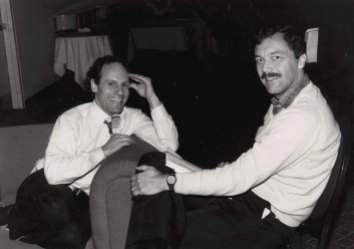
John C. Thomas currently does independent consulting in human-computer interaction and writes both fiction and non-fiction. After receiving his Ph.D. in psychology from the University of Michigan in 1971, Thomas managed the “Mental Performance and Aging” research project, for which he designed hardware, software, and interfaces for online testing and analysis. This work resulted in the “Organism-Environment Interaction Theory of Aging.” In 1973, Thomas began work at the IBM T.J. Watson Research Center, where he researched several areas of human-computer interaction, including query languages, natural language processing, design problem solving, audio systems, and speech synthesis. He spent two years at IBM CHQ in the Chief Scientist’s Office advocating for IBM to pay more attention to the human aspects of their products. He left IBM in 1986 to found and direct the Artificial Intelligence Laboratory at NYNEX Science & Technology, where he established world-class groups in applied expert systems, speech recognition, neural networks, and HCI before returning to IBM.
From 1998 to 2013, he conducted HCI research at IBM’s T. J. Watson Research Center and helped formulate IBM strategies for Cognitive Computing, Smart Cities and IT for the Next Billions. Projects included the development of a socio-technical pattern language, the business uses of stories, High Performance Computing tools, and the “Dynamic Learning Environment” project, which won several best paper awards and the 2004 Brandon Hall Gold Prize for technical innovation in e-learning. Thomas has dedicated his career to facilitating the creation and flow of knowledge and organizational effectiveness.

Thomas played an active role in the formation of SIGCHI, ACM’s Special Interest Group in Computer Human Interaction. He served as publications co-chair for the Gaithersburg Conference. He was general co-chair of CHI in 1991. He also served on the SIGCHI Conference Management Committee from 1992-1995 and on the SIGCHI Executive Committee from 2009-2015, for which he received the SIGCHI Lifetime Service in 2018. He has co-chaired many workshops on human-computer interaction patterns and socio-technical patterns at CHI, CSCW, ECSCW, and INTERACT.
Thomas is credited with more than 250 publications and invited presentations in HCI, computer science, and psychology. He served on numerous Ph.D. committees as well as grant review committees for NSF, DARPA, ONR and SBIR. He has taught courses in Human Factors for Information Systems, the Psychology of Aging, Statistics, Cognitive Psychology, and Clinical Psychology. With Wendy Kellogg, he developed and delivered the training materials for IBM’s World Jam, the first very large-scale on-line real time collaboration. He currently manages a LinkedIn group called HCI/UX Mentoring Circle.
“My admiration for John goes back to the early 1980s. His fresh way of looking made me pay attention. John’s story-telling and writing skills were also inspirational examples as in his early understanding of the role of metaphor in HCI design. I sometimes thought his ideas were unrealizable, such as his 1999 Million Person Communities, but he successfully anticipated social networks that were much bigger. John and Wendy Kellogg came under the influence of the “Younger Next Year” book, becoming exercise devotees, which definitely changed my behavior.” – Ben Shneiderman
Education:
- Ph.D. in Experimental Psychology, University of Michigan (1971)
- B.A., Case-Western Reserve University (1967)
Affiliations:
- Research Staff Member (2001 – Present); Manager, Knowledge Socialization (1998 – 2001), IBM Research
- Executive Director, Bell Atlantic Science & Technology (1997 – 1998)
- Executive Director (1994 – 1997); Director, Artificial Intelligence Laboratory (1986 – 1993), NYNEX Science & Technology
- General Co-Chair of CHI, ACM’s Conference on Human Factors in Computer Systems (1989 – 1991)
- Project Manager, IBM T.J. Watson Research Center (1982 – 1986)
- Staff, Chief Scientist’s Office, IBM Corporation (1980 – 1982)
- Research Staff Member, IBM T.J. Watson Research Center (1973 – 1980)
- Research Associate, Harvard Medical School and Mass. General Hospital (1971 – 1973)
Links:






